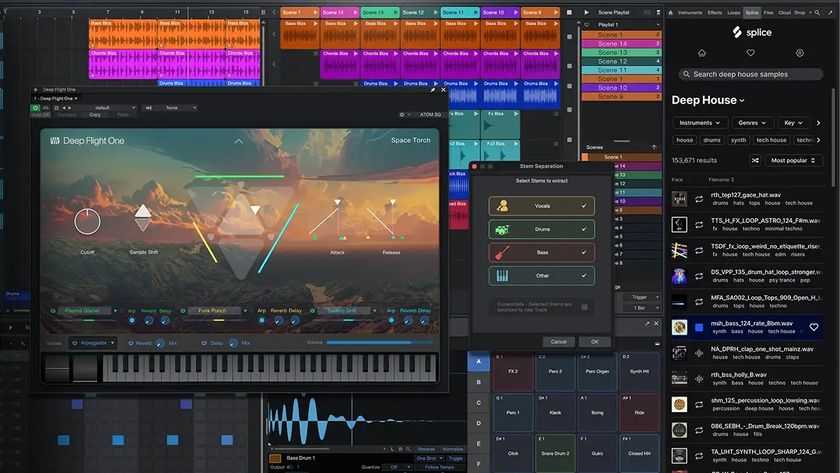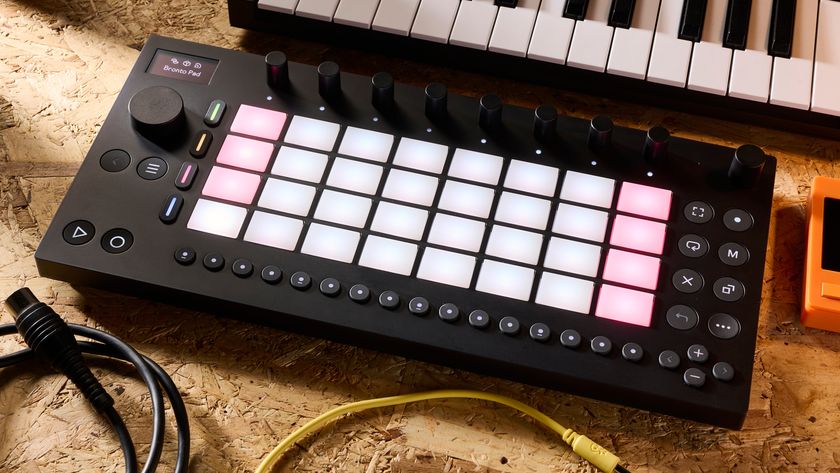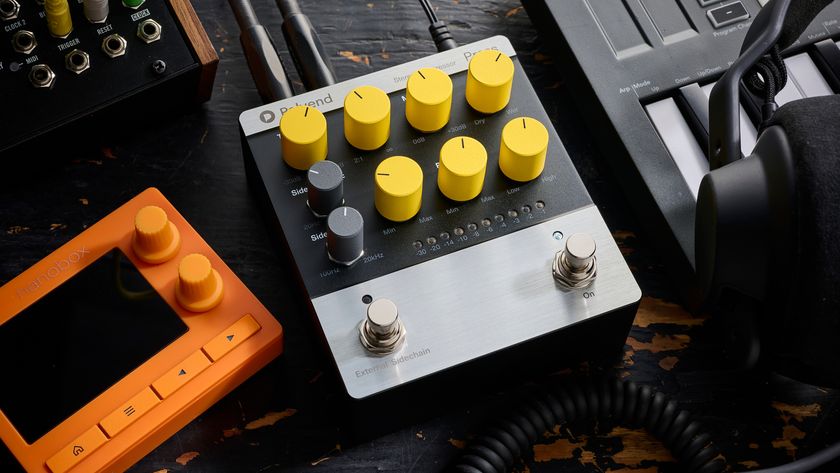13 pro mastering tips

This might sound clichéd, but we're going to say it anyway: what Mazen Murad doesn't know about mastering isn't worth knowing.
His credits include releases from a raft of modern-day superstars, from the quirky talents of Björk to Duffy's sultry swing, Groove Armada's laid-back tracks and the raw rock muscle of Muse.
We asked him to contribute to our collection of pro tips for aspiring mastering engineers, and he duly obliged…
Move the bass
If your bass is muddy, try using mid/side EQ. "You can take out the bass where it doesn't need to be - say if there's a bit of spill into the stereo," says Mazen. By reducing the clutter from the stereo field, the centre bass can poke through, plus it's not getting muddled up in the busy side signal.
Compression affects width
A narrow mix can be widened using mid/side processing, as compression and gain on the outer frequencies will accentuate them. Just be careful not to obscure important parts in the centre, like bass and vocals. An overly wide mix can be reigned in by compressing the centre signal, then raising its level back up.
Tricksy kicks
If your kicks are cutting through too much yet turning them down takes out too much, try compression with a fast Attack and/or slow Release. Conversely, if your kicks don't come through enough, try a slow Attack to let the crack of the kick through, plus a fast Release. Multiband compression can zero in on kicks.
Drop the output
When creating MP3s, you'll often get better results by converting from a WAV that has been mastered to a slightly lower output level than 0dB. Mazen recommends -0.5dB. "I did the tests myself," Mazen shares. "The difference was unbelievable."
Get the MusicRadar Newsletter
Want all the hottest music and gear news, reviews, deals, features and more, direct to your inbox? Sign up here.
Use multiple limiters
"Don't just use one limiter," says Mazen. "I have two or three, each doing a little bit." This allows you to gradually scale up the limiting. Two limiters with 1.5dB of gain reduction could sound louder and punchier than the same limiter with 3dB reduction.
Too loud to be proud
It's a misconception that mastering alone is responsible for loudness, as any track's potential for 'going loud' is really down to how well it's mixed. If your mixes fall apart when pushed as loud as commercial ones, it's likely your mixing that's at fault, not the mastering.
Cut before you boost
"If your mix is too dull, don't add top end," suggests Mazen. "Try taking out some bottom end first." There's only so much space in a mix, and too much of one thing will obscure others.
Know the limits
"For the radio, sometimes louder isn't better," Mazen reveals. "Most people think that to get your tracks really loud on radio, you need to limit them, but we've done tests and if you limit it too much at mastering, it will be quieter on radio once it's gone through their system."
Do dither
Dithering is a complex subject, but all you really need to know is that you should apply it at the very end of your mastering chain, after all other processors (many master limiters include dither for this very purpose). Dither makes a very subtle difference that you may only hear on the quietest parts of your track, but it's dead easy to apply, and there's no reason not to do it, especially when rendering out to 16-bit WAV (eg, for CD). So just do it!
Notch the kick
"Don't use shelving EQ to boost your kick," Mazen warns. "When you do this, you are boosting all the harmonics too. Always use notching to just control the thud of the kick. Make sure you actually need to boost the kick, rather than making space for it in your bass using EQing and sidechain ducking."
Ramp up the vocals
If a vocal isn't cutting through, Mazen uses EQ. "I go to the centre and add some mids. I boost around the 2, 2.7, 3kHz range , depending on the vocal tone." He may also use a mid/side processor to make the centre channel louder.
Have some restraint
"Just because I have these great tools doesn't mean I have to use them on everything," Mazen warns. "If the music's well-balanced, maybe I don't need a compressor. It's all about gain structure. You want to turn your track up but you don't want to ruin the transients."
Back to the drawing board
If you find yourself using effects to excess, chances are you aren't dealing with a good enough mix. While a pro engineer might have to make the best of things in this situation, we DIY types have the luxury of being able to revisit the project and make the necessary adjustments right there. So, make sure your mix is up to scratch rather than trying to force it over the final hurdle that is mastering.
Liked this? Now read: 9 pro mastering tips for beginners
Computer Music magazine is the world’s best selling publication dedicated solely to making great music with your Mac or PC computer. Each issue it brings its lucky readers the best in cutting-edge tutorials, need-to-know, expert software reviews and even all the tools you actually need to make great music today, courtesy of our legendary CM Plugin Suite.
Most Popular







